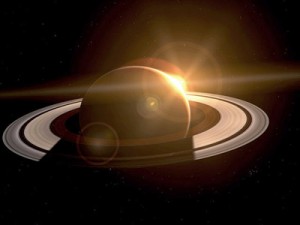
So I was amused to find this as I was checking news this morning:
(CNN) — Scientists at NASA have discovered a nearly invisible ring around Saturn — one so large that it would take 1 billion Earths to fill it. Its diameter is equivalent to 300 Saturns lined up side to side. And its entire volume can hold one billion Earths, NASA Jet Propulsion Laboratory said late Tuesday. The obvious question: Why did it take scientists so long to discover something so massive?
The ring is made up of ice and dust particles that are so far apart that “if you were to stand in the ring, you wouldn’t even know it,” Verbiscer said in a statement. Also, Saturn doesn’t receive a lot of sunlight, and the rings don’t reflect much visible light. But the cool dust — about 80 Kelvin (minus 316 degrees Fahrenheit) — glows with thermal radiation. NASA’s Spitzer Space Telescope, used to spot the ring, picked up on the heat.
Coincidence? Maybe not. And of course, Zaimont has a charming piano suite “Callisto” based on the moons of Jupiter, as well as other astral works: ASTRAL… a mirror life on the astral plane…; Sky Curtains: Borealis, Australis; and Chroma: Northern Lights. Look for video of the new concerto in an upcoming Composing Thoughts.
Here are the program notes supplied by Zaimont about the new concerto:
I. Outward Bound (10:00)
II. Nocturne (Lunar) (8:40)
III. Ad astra per aspera (6:50)
Concerto “Solar Traveller” is absolute music, following no implicit program. Yet the work and its individual movements carry descriptive titles rather than the more traditional tempo markings. This is because the Concerto is one of several of my works drawing inspiration from the impress upon our consciousness and imagination of the vastness, wonder and beauty of the natural world of sky, season and space. These pieces (all instrumental works) share a dramatic and coloristic emphasis, and their forms are far from traditional. (This inspirational thread began with the twelve solo-piano preludes of A Calendar Set, and continues in similar works, including the orchestral Chroma – Northern Lights and the piano trio ZONES.)
While the Concerto outwardly observes the usual three-movement large form, its individual movements digress in key ways from an orthodox ‘concerto’ template. “Outward Bound” contrasts two themes, one heroic, energetic and the second inward and moody. The motive-filled first theme is announced by the piano and soon becomes a communal statement for soloist and ensemble. When the second theme enters, it too is stated by the piano alone and it remains predominantly soloist’s terrain throughout. Extensive development centers on extrapolations of the heroic theme; to balance, the cadenza is devoted entirely to the second theme. The movement concludes heroically .
“Nocturne (Lunar)” is the soloist’s terrain, punctuated and frequently partnered by the ensemble in music largely expansive, as if in ‘stopped’ time. As it proceeds a tune arises (heard first as a flute solo above quiet piano accompaniment), fashioned from the simplest of materials; each of the tune’s appearances anchors the movement, calming the mercurial, fragmentary outbursts from the piano. At times as desolate and unfamiliar as a lunar landscape, the nocturne eventually calms, concluding serenely.
A driving sprint, “Ad astra per aspera” grows from an insistent rhythmic cell freshened by hemiolas and other cross-rhythms and chromatic clashes. Percussion is spotlighted throughout, and the soloist shifts frequently from foreground to combining with the ensemble — a change of function which in itself becomes textural counterpoint to the forward thrust. A brief respite (trumpet solo) occurs during which the incessant beating disappears, but the essential rhythm returns shortly in full force. Towards the end the Nocturne’s theme enters in the ensemble, in overlapping meter with the soloist, who continues the main drive; just prior to the vehement close a fragment of the heroic first movement is again heard.
The work ties together through a technical feature: Each movement is built from the raw material of a progressively smaller interval.
Outward Bound’s themes are built from 3rds and all of the development highlights that consonant interval. (At one point there is a scale upwards across two-thirds of the keyboard in parallel thirds, played entirely by the left hand). Built from 2nds, the Nocturne achieves its uneasy, fragmentary quality from the clash of 2nds hammered loudly or (stretched to 7ths and 9ths) in glittering scherzo filigree. “To the stars, through adversity” is formed by ultimate compression: pounding unisons. Thus, the Solar Traveller pianist physically experiences the compressive forces and increased tensions we associate with space travel’s incredible speeds, through the analog of progressive intervallic compression throughout the piece.
 Suzanne Fiol, founder, artistic director, and driving force behind ISSUE Project Room, died yesterday. The web site announcement reads in part: Born on May 9, 1960, Suzanne died at 1:05 pm on Monday, October 5, 2009, after fighting a courageous and inspiring battle against cancer. Suzanne passed peacefully surrounded by loved ones at New York Presbyterian Hospital.
Suzanne Fiol, founder, artistic director, and driving force behind ISSUE Project Room, died yesterday. The web site announcement reads in part: Born on May 9, 1960, Suzanne died at 1:05 pm on Monday, October 5, 2009, after fighting a courageous and inspiring battle against cancer. Suzanne passed peacefully surrounded by loved ones at New York Presbyterian Hospital. 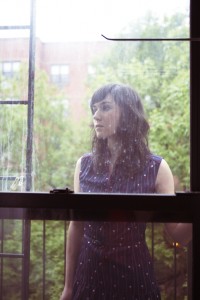
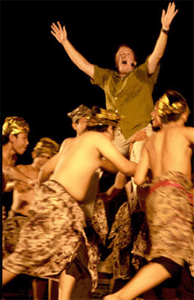 Old age isn’t for sissies or the timid and I think the same thing can be said about writing for the stage, especially if it’s the operatic one. It took Verdi years before he produced something that worked on the boards. Evan Ziporyn’s no stranger to the stage–he’s written and performed Shadowbang–and his new two-act 140 minute amplified opera
Old age isn’t for sissies or the timid and I think the same thing can be said about writing for the stage, especially if it’s the operatic one. It took Verdi years before he produced something that worked on the boards. Evan Ziporyn’s no stranger to the stage–he’s written and performed Shadowbang–and his new two-act 140 minute amplified opera 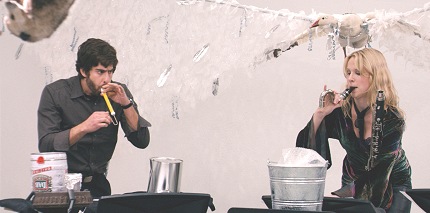
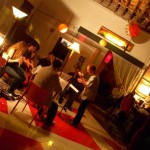 I thought it might be nice to close out the month of interviews from Chicago by featuring a couple musicians from
I thought it might be nice to close out the month of interviews from Chicago by featuring a couple musicians from 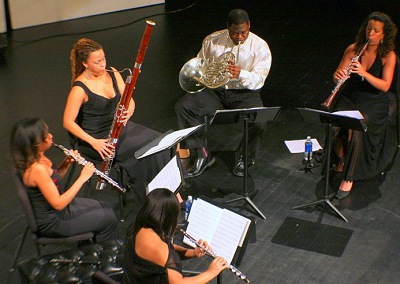
 But just now the latest offering is stellar jazz vibraphonist
But just now the latest offering is stellar jazz vibraphonist  Received a blurb from the LA Phil the other day, which in all caps proudly declares “LA PHIL LAUNCHES MICROSITE CELEBRATING INCOMING MUSIC DIRECTOR GUSTAVO DUDAMEL” … Kaboom!… Here’s the relevant bit (my bolds):
Received a blurb from the LA Phil the other day, which in all caps proudly declares “LA PHIL LAUNCHES MICROSITE CELEBRATING INCOMING MUSIC DIRECTOR GUSTAVO DUDAMEL” … Kaboom!… Here’s the relevant bit (my bolds): A few great concerts you might be able to catch, or might be missing:
A few great concerts you might be able to catch, or might be missing: